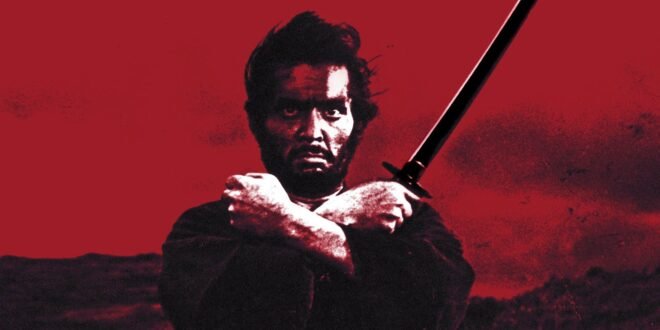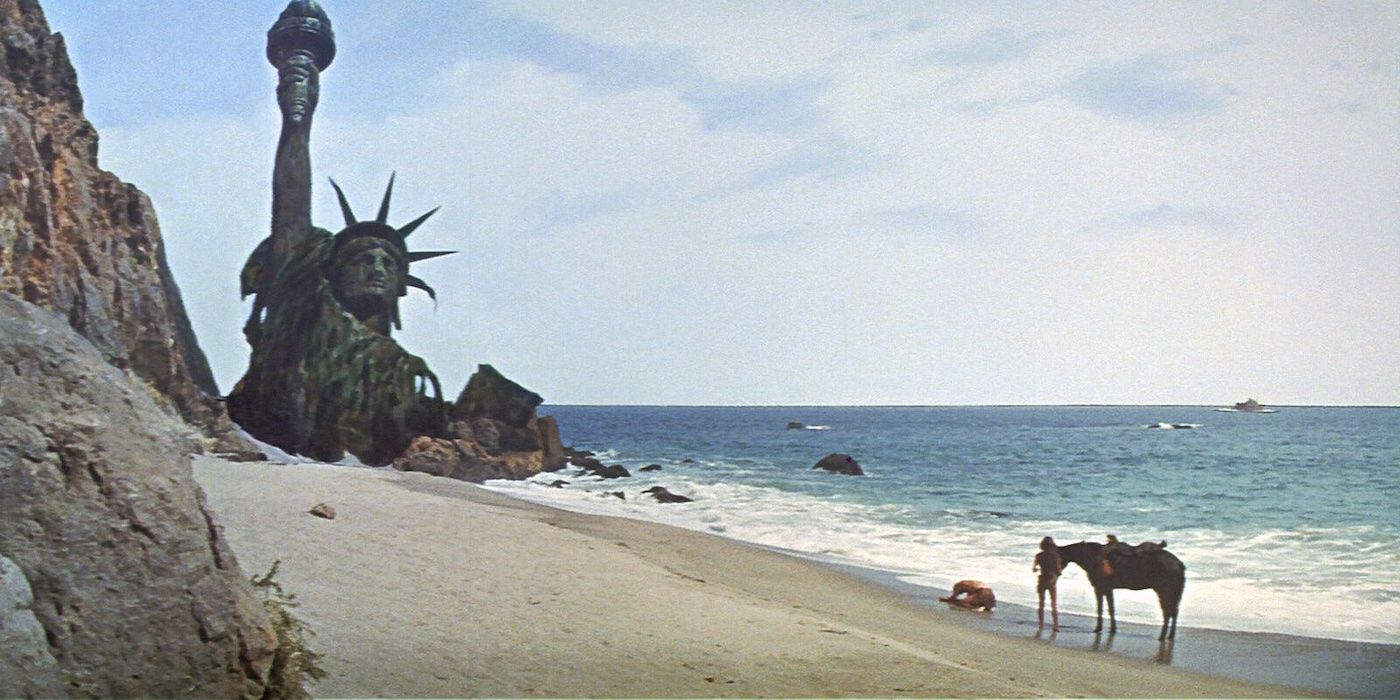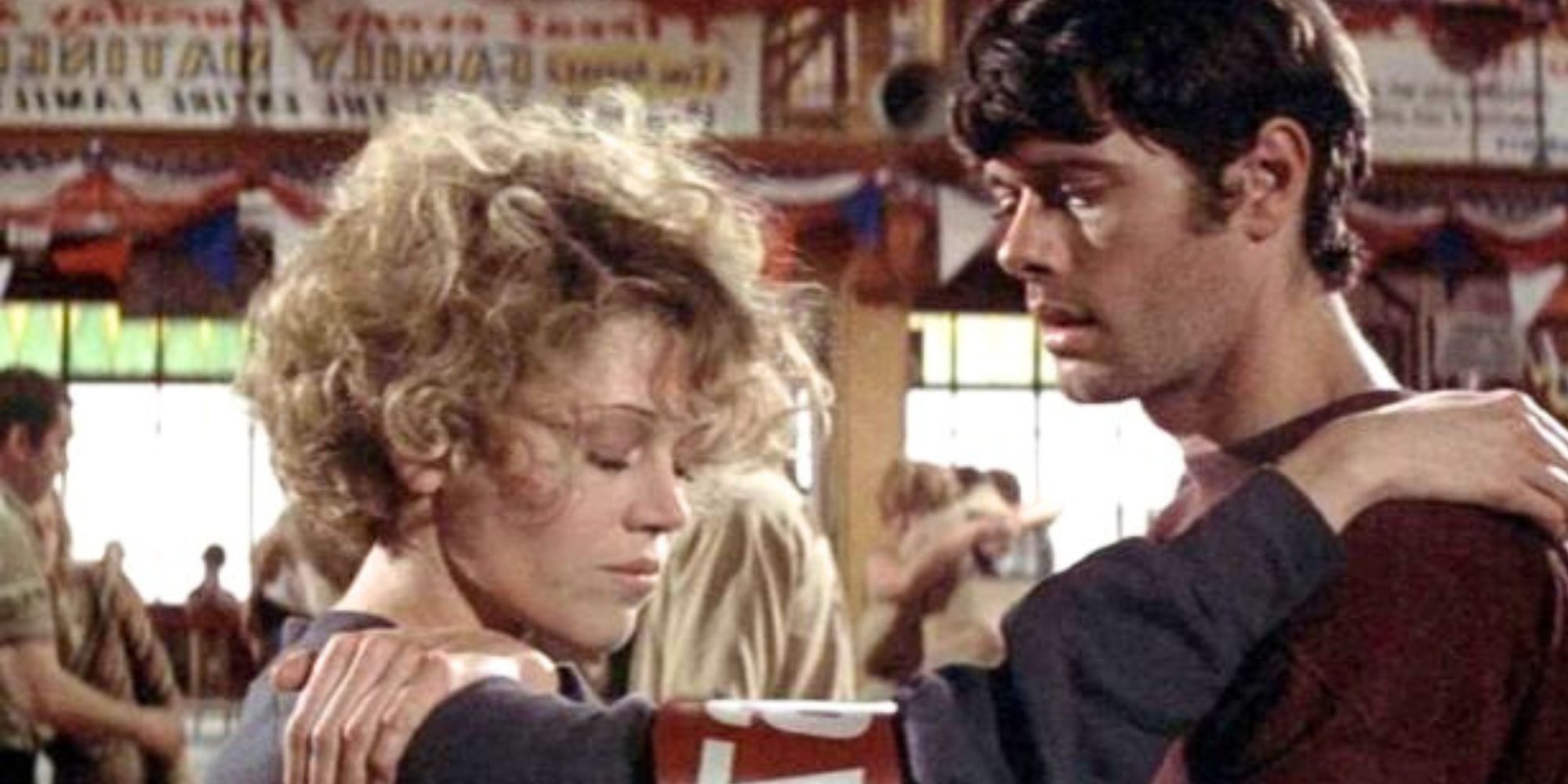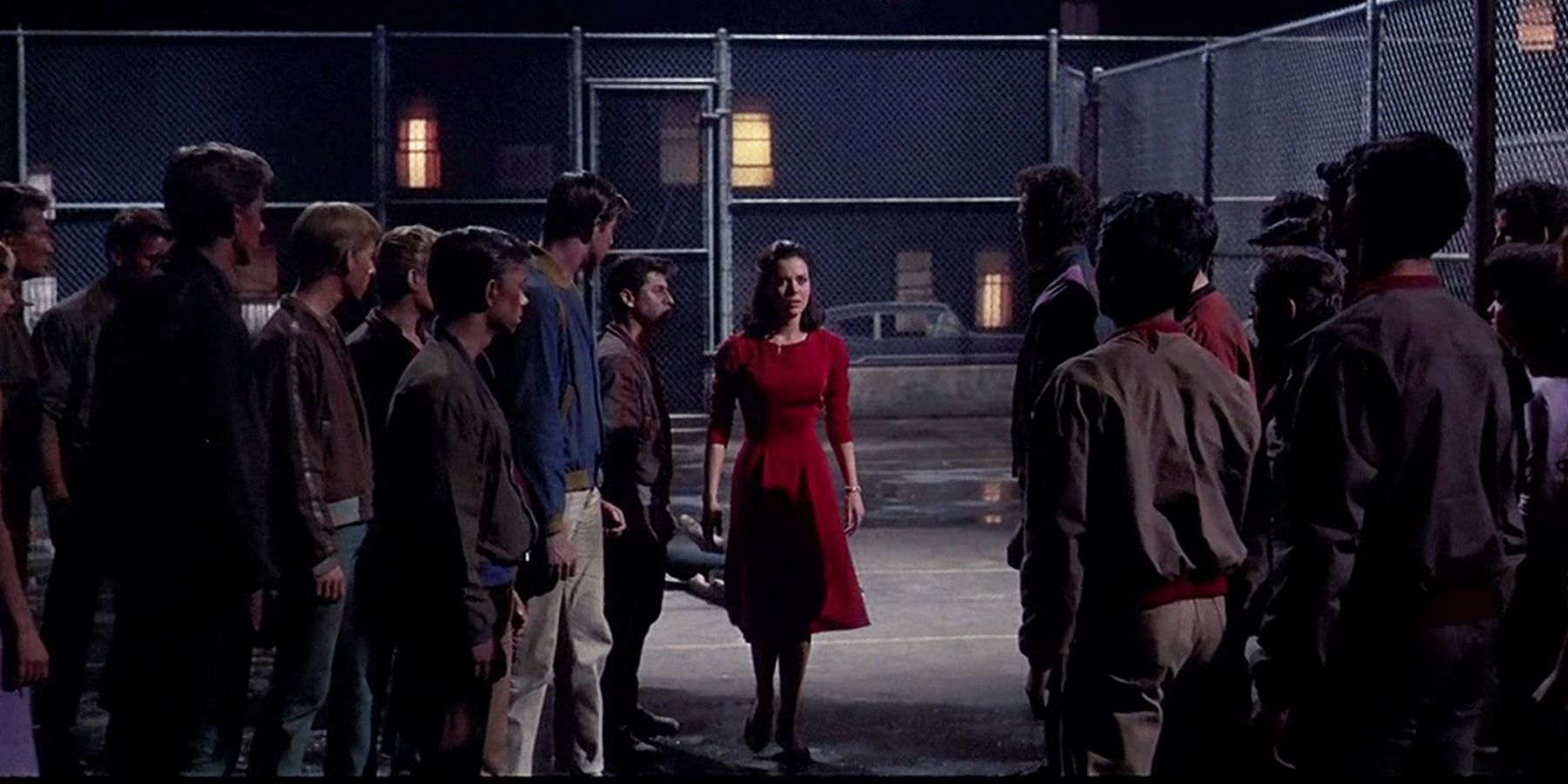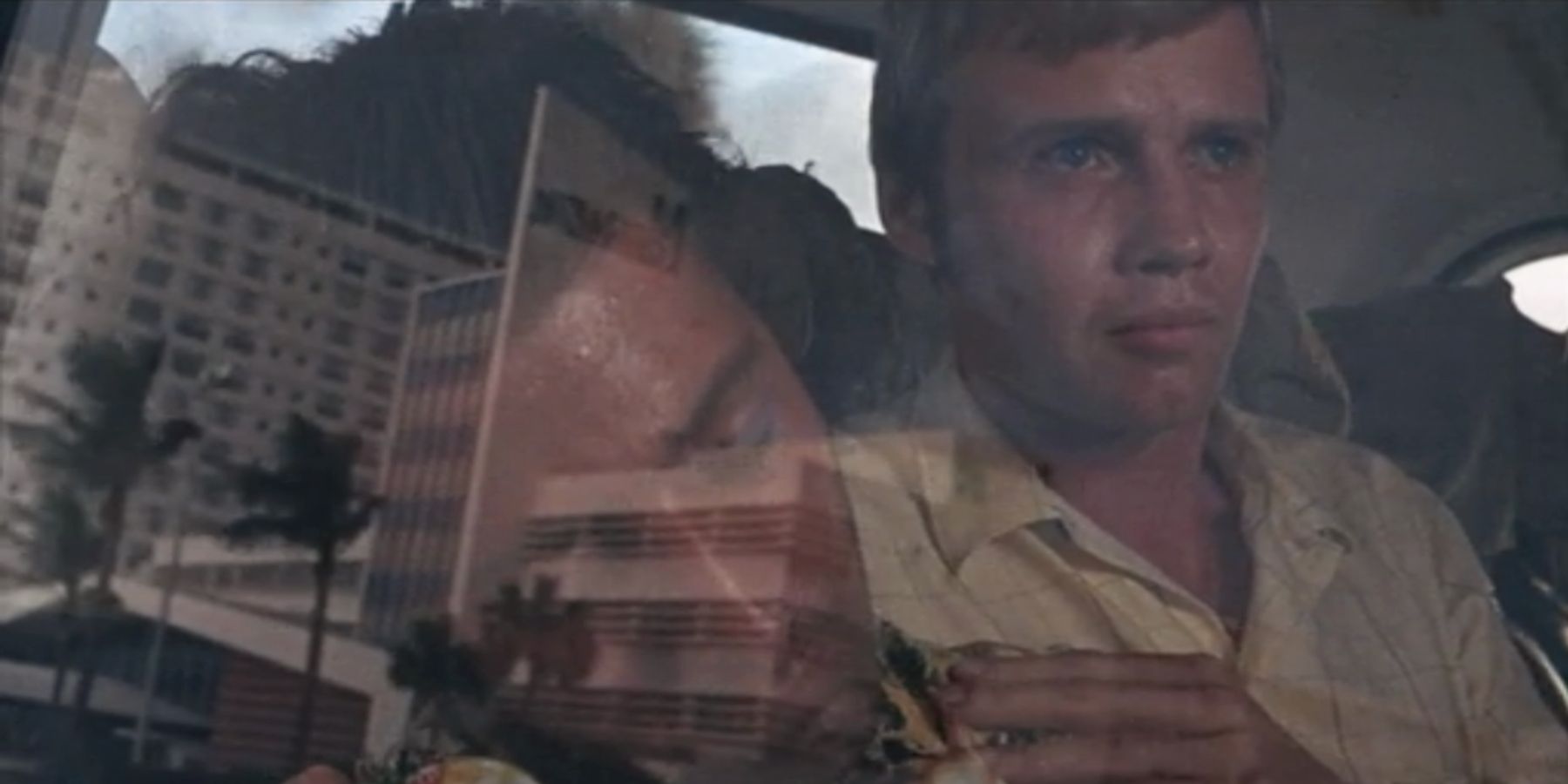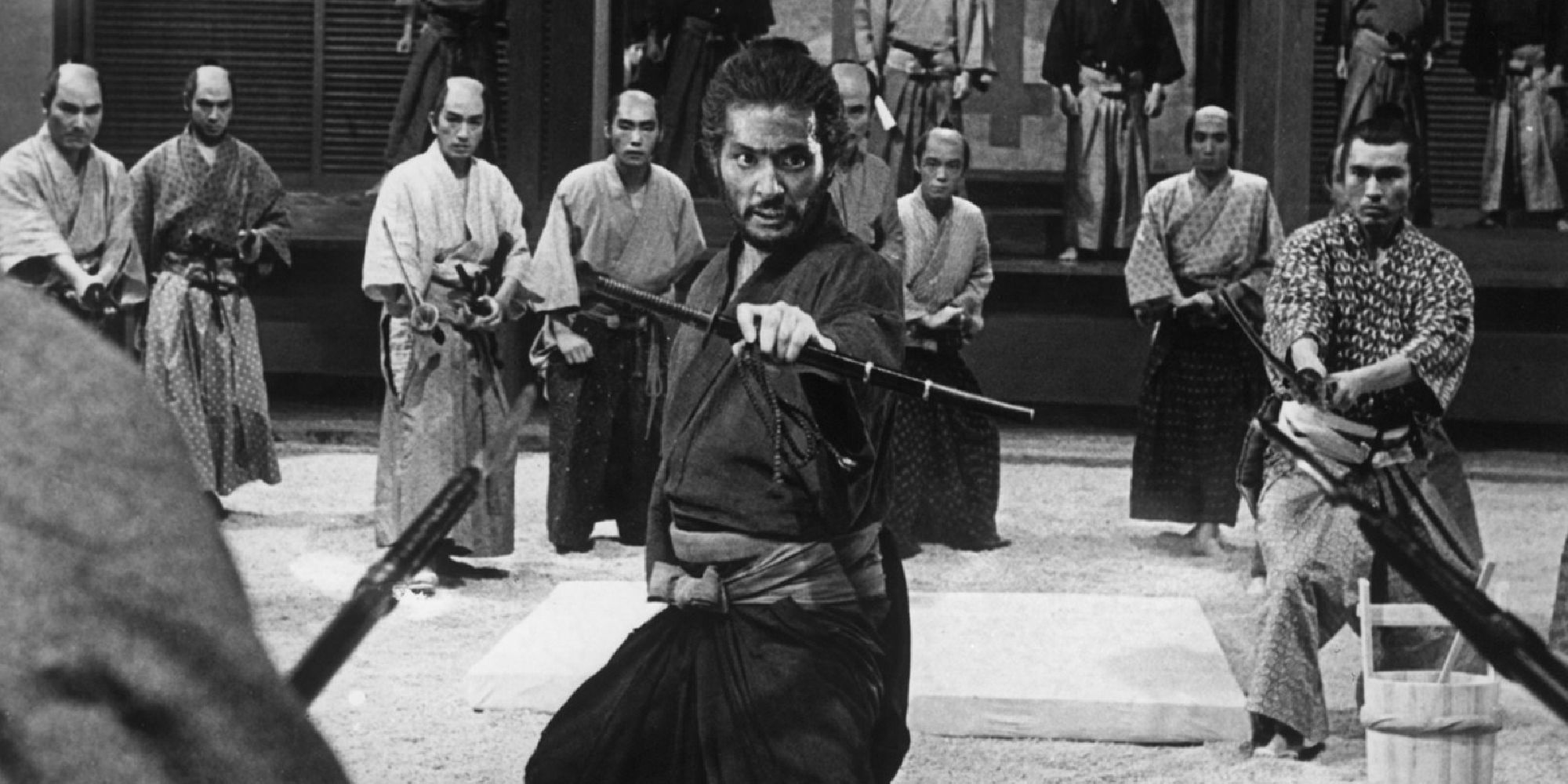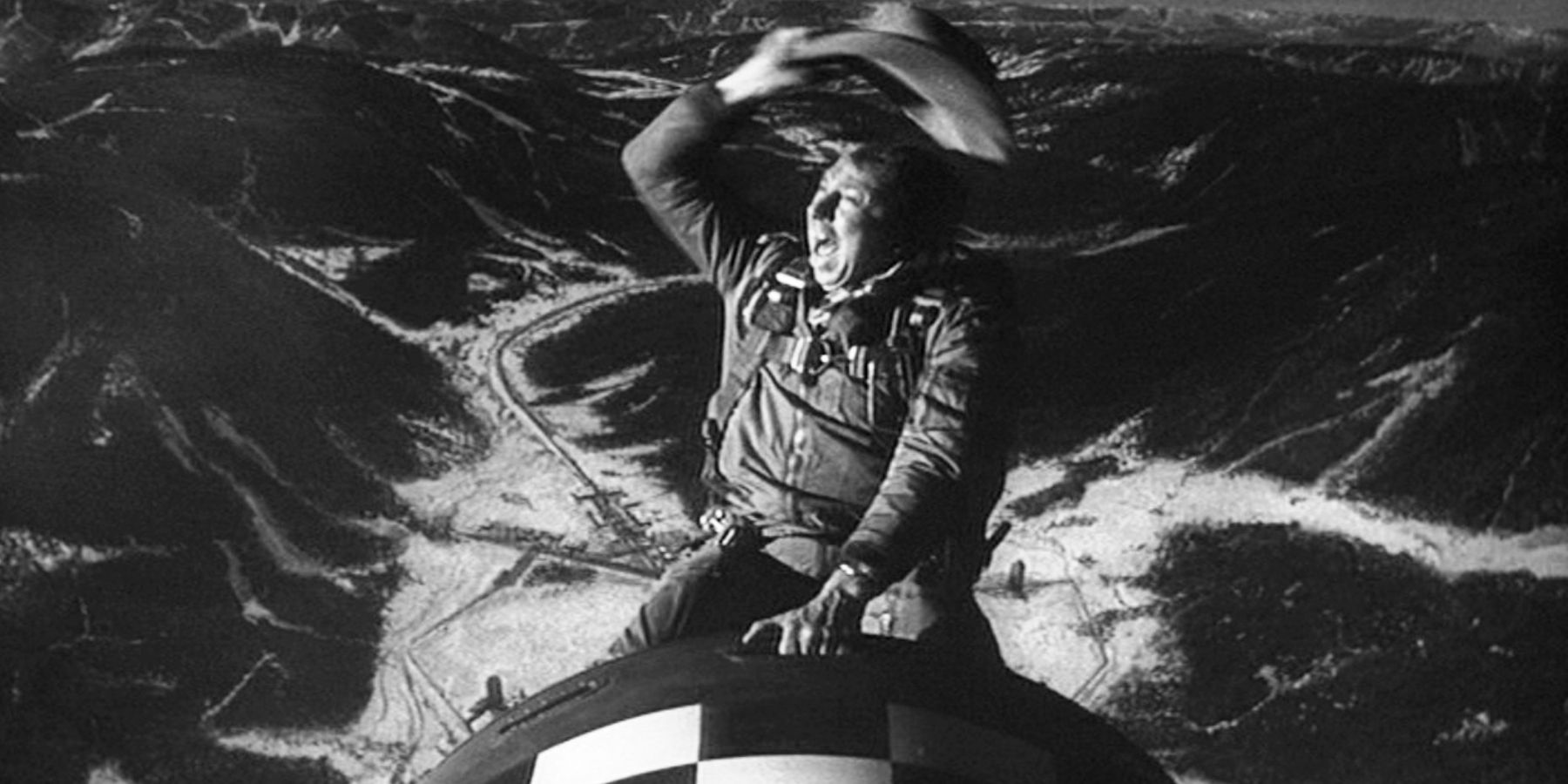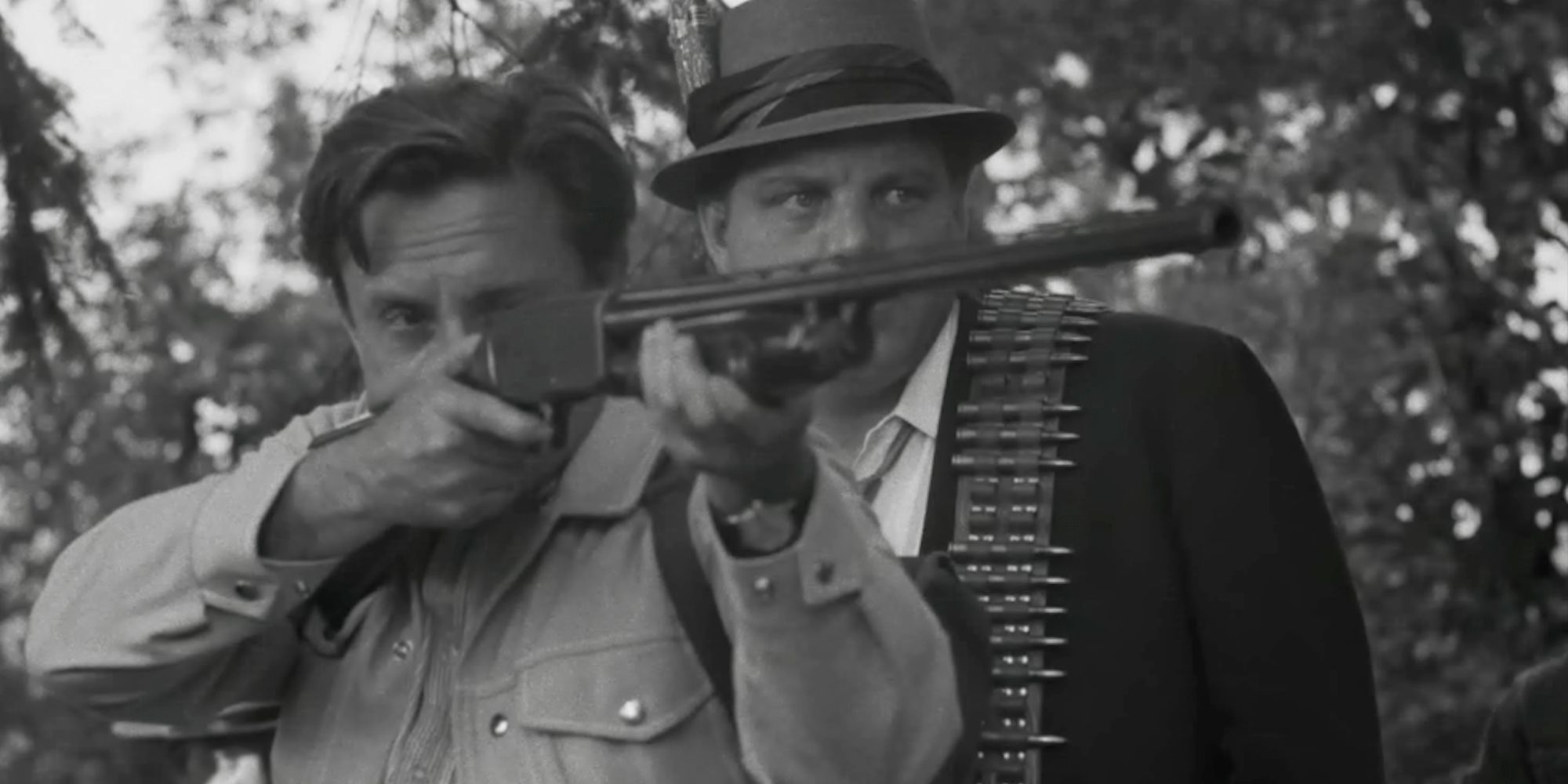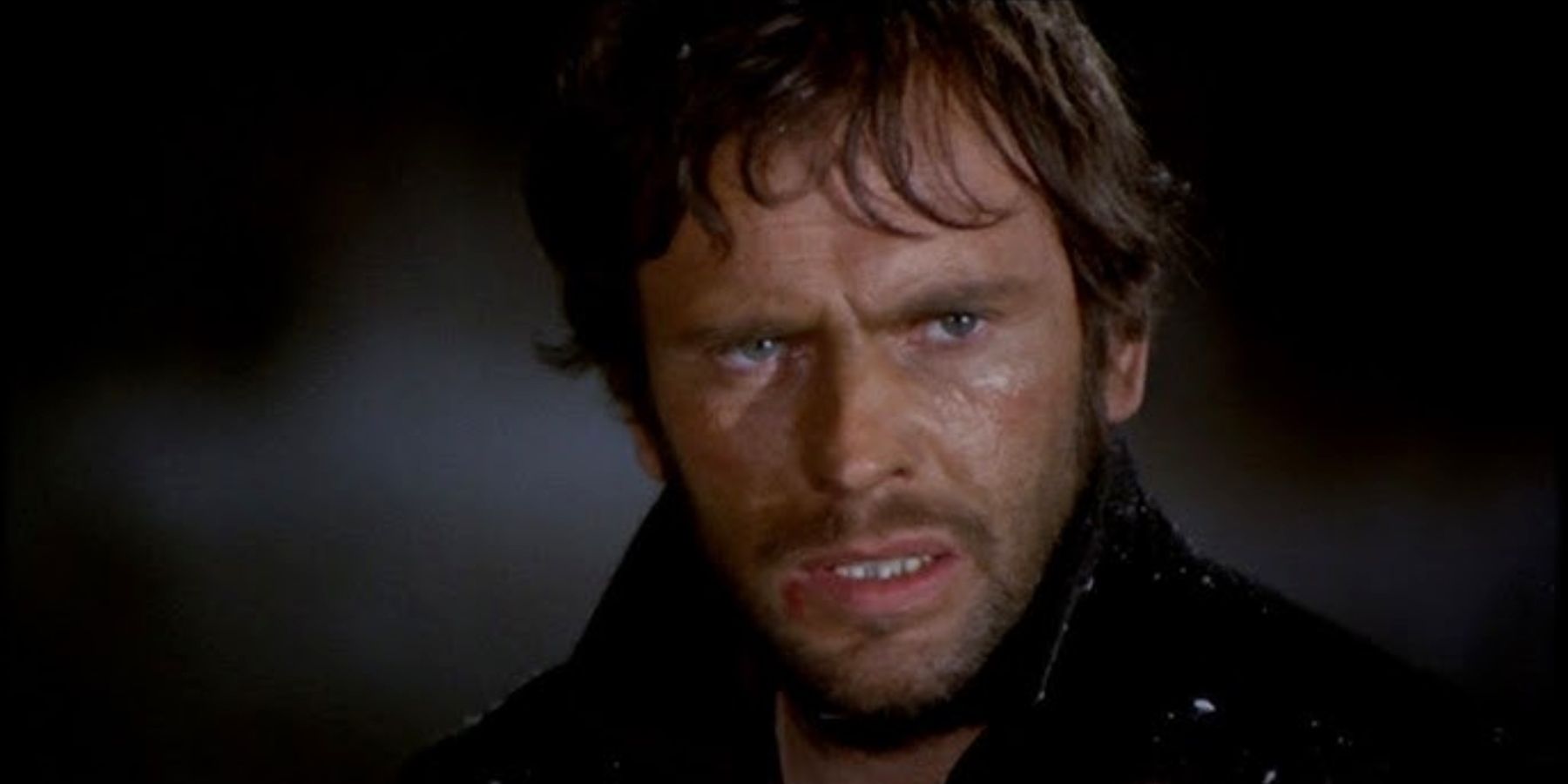Every decade has its tumultuous or potentially divisive events, but things seemed particularly intense during the 1960s. Times changed, conventions were challenged, and certain societal norms were altered. Again, every decade has its big or groundbreaking moments, but the 1960s especially so, particularly when it came to American films and the way the Hays Code was done away with by the decade’s end.
So, perhaps more than any decades before it, the 1960s had a good many high-profile and highly acclaimed movies that had truly downbeat endings. The decades that followed the ‘60s did, too, but the 1960s kind of broke ground in terms of how tragic movie endings could get, and how many movies were willing to end on a downer note. The following titles exemplify this well. And, though it might go without saying, just in case it doesn’t:
The following list contains spoilers for the movies discussed.
10 ‘The Wild Bunch’ (1969)
Director: Sam Peckinpah
The Wild Bunch didn’t kill the Western genre overall, because Westerns did continue to be made after 1969… but it sure feels like, at times, it was trying to spectacularly slaughter the genre as a whole. It is a grim, nihilistic, and brutal Western about a band of aging outlaws trying to pull off a last big score to effectively retire from that way of life, but finding such an endeavor is easier said than done.
At a point, The Wild Bunch ends up being about going out on one’s own terms, with the “heroes” who make it to the film’s end intentionally marching to certain death, and going out in blazes of glory. The fact they make that choice does ensure the bitter pill goes down a little smoothly, but it’s still brutal and saddening stuff, contributing greatly to the overall funereal feel of The Wild Bunch.
- Release Date
- June 19, 1969
- Director
- Sam Peckinpah
- Runtime
- 135 Minutes
9 ‘Planet of the Apes’ (1968)
Director: Franklin J. Schaffner
Twist aside, Planet of the Apes deservedly holds classic status as a science fiction movie, also being noteworthy for kickstarting a movie series that continues to be added to more than 50 years later. The film seems to take place on a strange alien planet ruled by highly intelligent apes, with an astronaut becoming stranded there and learning the hard way that the humans on the planet are treated like slaves.
Of course, things go from bad to worse because of that aforementioned plot twist that reveals the astronaut was actually on Earth all along, and that this is how things are run on said planet in the future. The ending is almost as upsetting as watching the movie and expecting to see a “Dr. Zaius” musical number complete with a breakdancing ape, like in The Simpsons, and not getting it.
- Release Date
- April 3, 1968
- Director
- Franklin J. Schaffner
- Cast
- Charlton Heston , Roddy McDowall , Kim Hunter , Maurice Evans , James Whitmore , James Daly , Linda Harrison , Robert Gunner
- Runtime
- 112 Minutes
8 ‘The Trial’ (1962)
Director: Orson Welles
Despite its title, The Trial isn’t really a courtroom drama in the traditional sense, and instead feels like more of a psychological drama that borders on being a horror movie at times. It’s appropriately surreal and nightmarish for something based on a Franz Kafka story, with The Trial following one man’s hopeless pursuit of truth and justice after he’s accused of committing a crime, but isn’t told what that crime was.
There’s a steady progression of things becoming more baffling and unfair as events go on, culminating in an unsurprisingly tragic ending for the hapless protagonist at the movie’s center. The whole movie is therefore a pretty miserable affair, but at least it’s very compelling, owing to the bold directorial choices Orson Welles makes and the committed central performance here by Anthony Perkins.
The Trial
- Release Date
- December 22, 1962
- Runtime
- 118
- Main Genre
- Drama
7 ‘They Shoot Horses, Don’t They?’ (1969)
Director: Sydney Pollack
Perhaps a little like The Trial, They Shoot Horses, Don’t They? is a heavy-going film where, right from the outset, a positive ending of any sort looks extremely unlikely. It’s about a dangerously intense and high-stakes dance marathon, which goes on for so long – and features contestants so desperate for money – that safety goes out the window, and there ends up being genuine victims.
The cruelty of the people behind the event and the length of time it goes for takes something which might sound fun on the surface, and warps it into a torturous affair. By the end of They Shoot Horses, Don’t They?, some people have died, and there isn’t even a winner of the contest in sight. It is a powerful and well-made film, sure, but it’s hard to recommend it to anyone unless one’s ready to feel pretty damn down.
6 ‘West Side Story’ (1961)
Directors: Robert Wise, Jerome Robbins
West Side Story has a narrative that’s inspired by Romeo and Juliet, so the tragedy of it all isn’t too surprising. It still hits hard, though, because the film does a remarkable job of fleshing out its characters and making one feel bad when the romance at the film’s center is cut short by one final murder that takes place within a cycle of violence and revenge.
Unlike in Romeo and Juliet, one half of the main couple survives, but depending on one’s interpretation, this could make things even more downbeat, as they don’t even get to be “together” in death. West Side Story is an effective tearjerker of a film, and it drives the youthful emotions of Romeo and Juliet home harder than perhaps any other adaptation – loose or faithful – of the Shakespeare play.
West Side Story (1961)
- Release Date
- October 18, 1961
- Director
- Robert Wise , Jerome Robbins
- Cast
- Natalie Wood , Richard Beymer , Rita Moreno , Russ Tamblyn
- Runtime
- 152 minutes
5 ‘Midnight Cowboy’ (1969)
Director: John Schlesinger
In hindsight, Midnight Cowboy feels like a tremendously important film for showcasing where cinema would go in the 1970s. It’s a gritty drama that deals with some heavy subject matter in a way that – while not as uncompromising as later dramas from the 1970s and beyond, perhaps – was a good deal blunter and more mature than many American films that came before it.
Essentially, Midnight Cowboy is about a male prostitute and a swindler trying to make it in a harsh and unforgiving New York City, all the while having dreams that will probably never come to fruition, including a desire to move to Florida. Any semblance of hope is crushed by the film’s end, when one of the main characters succumbs to an illness while literally on a bus to Florida. It’s an ending that says “You can’t always get what you want,” and then it’s over, with the viewer forced to sit in unease and/or despair at how things turned out, and reckon with the notion that the underdogs didn’t win here.
Midnight Cowboy
- Release Date
- May 25, 1969
- Director
- John Schlesinger
- Runtime
- 113 minutes
- Main Genre
- Drama
4 ‘Harakiri’ (1962)
Director: Masaki Kobayashi
Successfully taking the samurai genre in a bold and harrowing direction, Harakiri soars as far as genre deconstructions go. Certain samurai movies made before 1962 had been a little more honest about the brutal reality of life during the era in Japanese history when samurai were active, but few films went as far as Harakiri in suggesting that most samurai clans were hypocritical and deeply flawed.
In essence, this film is about one man who wants to commit seppuku in front of a clan of samurai, but first wants to tell them why he’s made that decision. As it turns out, the clan is responsible for a string of various tragedies that destroyed his family and his life, so he ends his grim tale with a violent outburst, hoping to kill as many corrupt samurai as he can. He goes down swinging, but fails to entirely destroy the clan. Personal revenge here doesn’t bring about systemic change. The corruption flows on. The end.
- Director
- Masaki Kobayashi
- Cast
- Tatsuya Nakadai , Akira Ishihama , Shima Iwashita , Tetsurô Tanba , Masao Mishima , Ichirô Nakatani , Kei Satō , Yoshio Inaba
- Runtime
- 133 Minutes
3 ‘Dr. Strangelove or: How I Learned to Stop Worrying and Love the Bomb’ (1964)
Director: Stanley Kubrick
A classic war movie that’s aged regrettably well, Dr. Strangelove or: How I Learned to Stop Worrying and Love the Bomb manages to be both one of the funniest and one of the bleakest films of its decade. It’s a satirical movie about the world approaching its end due to nuclear war/annihilation, and the inability of numerous individuals to do anything about stopping such devastation.
It’s a farce on a global scale with world-ending stakes at hand and, in the end, things turn out as poorly as possible, and Dr. Strangelove concludes with the entire world going up in flames. The fact that it’s so deathly serious and comes at the very end of a largely comedic movie is mostly why it has such a huge impact. The mood whiplash is all incredibly intentional, and it’s hard not to come away from the whole thing pretty shaken up.
- Release Date
- January 29, 1964
- Director
- Stanley Kubrick
- Runtime
- 95 minutes
2 ‘Night of the Living Dead’ (1968)
Director: George A. Romero
Night of the Living Dead is classifiable as a B-movie about zombies, sure, but it’s also a good deal more upsetting and less intentionally fun than many of the zombie films that followed in its wake. It takes a serious and relatively grounded (for the time) look at a zombie outbreak, mostly centering on a group of people all trying to survive waves of the undead while contained to one claustrophobic farmhouse.
Tensions rise, the undead don’t stop coming, and just about everyone dies before the final scene… except for one man named Ben, who bests all the undead that attack the farmhouse. But he ultimately gets killed when he’s mistaken for a zombie by a “rescue party” in Night of the Living Dead’s final scene. It’s a cruel, bleak, but fitting ending in driving home the idea that, in a crisis, human beings can be their own worst enemy. Not only is it bleak by the standards of the 1960s, but it could well be one of the most despairing conclusions to any movie, regardless of the decade of release.
Night of the Living Dead
- Release Date
- October 4, 1968
- Director
- George A. Romero
- Cast
- Duane Jones , Judith O’Dea , Karl Hardman , Marilyn Eastman , Keith Wayne , Judith Ridley
- Runtime
- 96
- Main Genre
- Horror
1 ‘The Great Silence’ (1968)
Director: Sergio Corbucci
Making the ending to The Wild Bunch look like a walk in the park in comparison, The Great Silence likely has the most downbeat ending in the Western genre’s history. The film is about a mute gunslinger trying to stand up to a group of vicious bounty hunters who are terrorizing a town where a few outlaws are hiding out, but he ultimately dies trying to do what he believes is the right thing.
Further, during the ending of The Great Silence, the hero’s love interest dies, as does everyone he was trying to protect in the film, making all his efforts for nothing. No one even gets to avenge him, and the truly malicious villain gets to exit the film alive and victorious. It’s absolutely hopeless stuff, with an already bleak-feeling Western made all the more despondent due to its final couple of harrowing scenes.
- Director
- Sergio Corbucci
- Cast
- Jean-Louis Trintignant , Klaus Kinski , Frank Wolff , Luigi Pistilli , Mario Brega , Carlo D’Angelo , Marisa Merlini , Maria Mizar
- Runtime
- 105 Minutes
Source link
